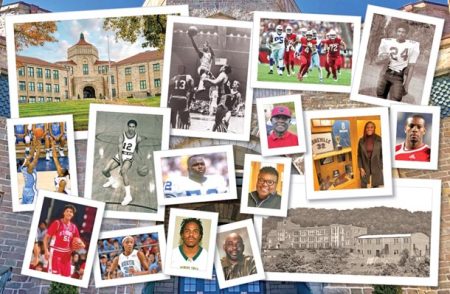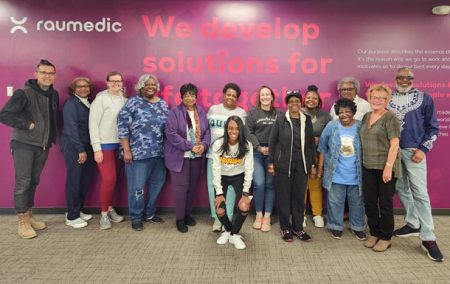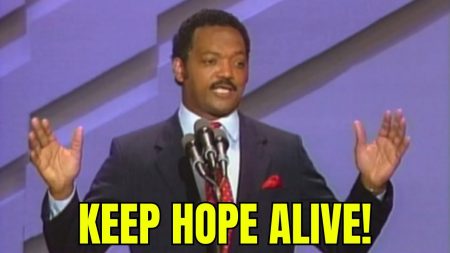Mountain Moral Monday: The People Speak Out

by Moe White
When Reverend Dr. William Barber, president of the NAACP of North Carolina, came to town for the second annual Mountain Moral Monday, he was met by a crowd of thousands: black and white, young and old, teachers, students, gay, straight, parents, grandparents, and grandchildren, the religiously devout and secular humanists, Republicans, Democrats, left-wing activists and traditional mountain folks.
They came from all over Asheville and Buncombe County, and from just about every part of the western end of the state. Participants represented Burke, Gaston, Haywood, Henderson, Jackson, Madison, Mitchell, Transylvania, Watauga, and Yancey counties, among others.
More photos posted here: Mountain Moral Monday 2014
They came for as many reasons as there are complaints about what the legislature and governor have done to the state over the past few years. Among the issues addressed:
- shifting the tax burden from the wealthy and large corporations to the middle class, the poor, and the elderly
- denying access to healthcare to more than half a million NC residents, at the cost of billions of dollars of economic activity and 50,000 jobs
- slashing the education budget and transferring millions of tax dollars to private schools, including for-profit businesses
- limiting voting opportunities for people of color, the elderly, the poor, and students
Before Dr. Barber arrived, the leaders of the NAACP Asheville Branch Political Action Committee addressed the crowd. Marvin Chambers announced the formation of five new chapters in mountain counties surrounding Asheville. “We have chapters in areas that I would never have dreamed of,” he said. “This movement is not just something that just happened. It will continue to grow because you’re here and will continue to make it grow.”
He was echoed by longtime civil rights activist Isaac Coleman, who exhorted, “If you do not belong to a chapter, please join. Go sign up, join an NAACP chapter.”
Education Cuts Provoke Anger
We spoke with a fourth-grade Buncombe County teacher, Dr. Patricia Murillo, who wrote her dissertation on teacher leadership for her doctorate in Educational Leadership. With 25 years as a teacher—15 of them here in Buncombe County—she brings both academic knowledge and years of experience to her work.
“Teachers are evaluated on leadership, but every step the Legislature has taken takes away leadership from the teacher. Teachers have less and less say about what they teach,” she says.
Murillo also focuses on class size, among other issues. “Research shows that the biggest thing that affects test scores is the ratio of students to adults,” says Murillo.
The maximum recommended student-teacher ratio is 20 students to one adult; at present that number is more than 30 to 1 and could reach 40 to 1 without teaching assistants. “That ratio affects learning. By increasing class sizes over and over, they act like they’re reducing class sizes, but then they take assistants out.”
She continues, “We haven’t had new books in five or six years. We need supplies. I’ve already spent $200 out of my pocket for next year.”
That brings up the question of teacher salaries, which are now 48th in the nation—down from the middle ranks before the Bush recession.
“We need raises that are real in real terms. The raise of 7% [passed by the GA at the beginning of August] is not a raise, compared to what would have been under the old steps from five years ago. This raise is not actually taking us back to where we would have been many years ago [under the old compensation system thrown out by the legislature].” Noting that Texas is regularly holding job fairs for NC teachers, she says, “They claim that they want to attract the best, and yet they’re doing all they can not to do so.”
Murillo wants the General Assembly to rebuild the state’s once-esteemed public education system. “Schools need more teachers and assistants, not fewer; better equipment; new textbooks, and other assets that help children learn and thrive.
“Anything that would add to education—and empower educators,” she says. “I just want to able to point out for my children examples of the ideals I teach. I want to show that to them in their real lives.”
Teachers on Medicaid and WIC
Lindsay Kosmala Furth, who spoke from the dais before Dr. Barber, echoed those remarks. She identified herself as “a public school teacher, taxpayer, mother, and one face of public assistance.” She, too, is a teacher in Buncombe County Schools.
“I never expected to use Medicaid to pay for my children’s checkups or see colleagues from my school in the WIC office,” she said with passion. “Our job is to provide an excellent education and we do. Your job is to allocate the money.
Noting the state budget for 2014 continues corporate tax cuts begun in 2013, she called out the Legislature. “You steal the money from public schools to give to corporations. How will we keep master teachers in our classrooms?” She added with irony, “Don’t tell us you’re increasing money for education: We teach math!”
Furst, like Murillo, demanded a fully funded education for every student. “We will never agree to cuts to education to pay for education, cuts to essential services to pay for other essential services. We can pay all our obligations if officials reinstate reasonable taxes. When money is lost to private schools, children lose reading coaches and librarians. When bus routes are cut, children miss school. Our children are irreparably harmed.”
She noted that environmental justice, gay and lesbian rights issues, Medicaid, a living wage, and voting rights all impact students, whose families reflect that diversity.
Forward Together
When Dr. Barber addressed the crowd of more than 6,000, his message called for “Love not hate, hope not despair, acceptance not exclusion, and hospitality and taking care of the least of these.”
It was a positive and nonpartisan message designed to appeal to the innate goodness and moral strength of citizens. He called on the public not to compromise principles but to speak truth to power, to “go to the seat of power and overturn the tables of the moneychangers who have turned the people’s house into a den of corruption and greed.”
Barber noted that the Moral Mondays protests had their origin in 2006 when state government was ruled entirely by Democrats. The program then was called “Forward Together” and developed the motto, “Forward Together—not one step back.” He recalled meeting with the late Senate Majority Leader, Martin Nesbitt of Asheville, who died in January.
“It was early on when the Forward Together movement first started … and thousands had marched on Raleigh to challenge the Democrats [then in office] to remember the good of the whole.” Unlike current office-holders, Democratic leaders met and talked with the protestors. “We talked about the moral values of people, progress, using politics to further the people of this state.”
Barber noted that the state Constitution asserts, “All political power should only be used for the good of the whole. Taking money from public education is a constitutional wrong, equal protection must be guaranteed, and the first duty of the state is to provide for ‘charitable benevolence and the welfare of the poor.’”
Non-Partisan Policy Issues
Barber also spoke of esteemed black Republicans like the late Senator Edmund Brooke of Massachusetts, who championed the cause of freedom and equality, and NC Republicans like former governor Jim Holshouser, who championed financial support for community development programs. “Even Ronald Reagan,” he pointed out, “supported the Earned Income Tax Credit (EITC),” which was eliminated by Raleigh Republicans in 2013.
Barber noted that by increasing the sales tax and taxable services, the 2013-14 budget had raised taxes on 85% of state residents, who can least afford it, so as to give a cut to 11%—who already have the most. Just in six counties the loss of EITC takes money from 30,000 people. Cuts to unemployment and public jobs along with fighting against labor rights, women’s rights, LGBT rights, and immigration rights were designed to “hurt the weak, create division, and turn people against each other.”
Commonly Held Views
Many others at the rally echoed and expanded on Dr. Barber’s remarks in interviews with The Urban News. Tom Coulson, a longtime WNC activist and “people’s lobbyist” on behalf of such organizations as Common Cause, said it’s essential to have “Medicaid funding for North Carolina so people can have medical care.” But while health care is a big deal, he added, “Voting rights is probably the most important. I believe in democracy, and what they’re doing just ain’t it.”
For Robbie Madden, who has served on the boards of Building Bridges, League of Women Voters, and other organizations, the General Assembly’s failings are broad-based. “The biggest issues are racism and sexism,” she told us. “This GA has done a lot of things to hurt women and families, and to hurt people of color: EITC destroyed, unemployment cut, all the attacks on women’s reproductive rights.
“One of the most important is how they have limited voter access to make it hard for people to vote. And the people who have been singled out for that are people of color, the elderly, and women.”
Community leader Willie Mae Brown bluntly called on the public to take action. “Stop sitting on your hands and go vote!” she said. Nothing will change the legislature if the same people stay in power. “Go vote!” she reiterated.
William Nocho, who moved to Asheville from Philadelphia 16 years ago, agrees that getting people to vote is essential. “I heard from a friend who’s involved in voter registration how I could get involved. That’s the most important thing: get people registered, and then get them out there to vote.”
More opinions posted here: Moral Voices
Dr. Barber’s Moral Compass
From the stage, Dr. Barber shared his motivation and views on the need for the movement he leads, a movement firmly embedded in morality. He said, “Deep within our being there is a longing for a moral compass in our state and nation. For those moved by the cries of our brothers and sisters, healing the sick, embracing the stranger, being fair to all members, educating all children, these [imperatives] should never be relegated to the margins. These are not policy issues. These are the centerpieces of our deepest convictions, our sense of righteousness, our moral compass.
“You don’t kick people when they are down. You care for your neighbors. You care for their well-being. Progressive mountain populism believes that we should use our prestige, our personhood, to build a fair and just community for everyone.
“This is a fight for the future and soul of our state, and it does not matter what the critics call us. They deride us because they can’t debate us. You can call us Liberal, Communists. But we know who we are. We are black, white, Latino, Native American, people of faith and people not of faith, immigrants, business owners, doctors, gay, straight, students, retirees … We are many colors united in our efforts to fight for the soul of our state.
“We are North Carolina, we are America, and this is what democracy looks like.”








